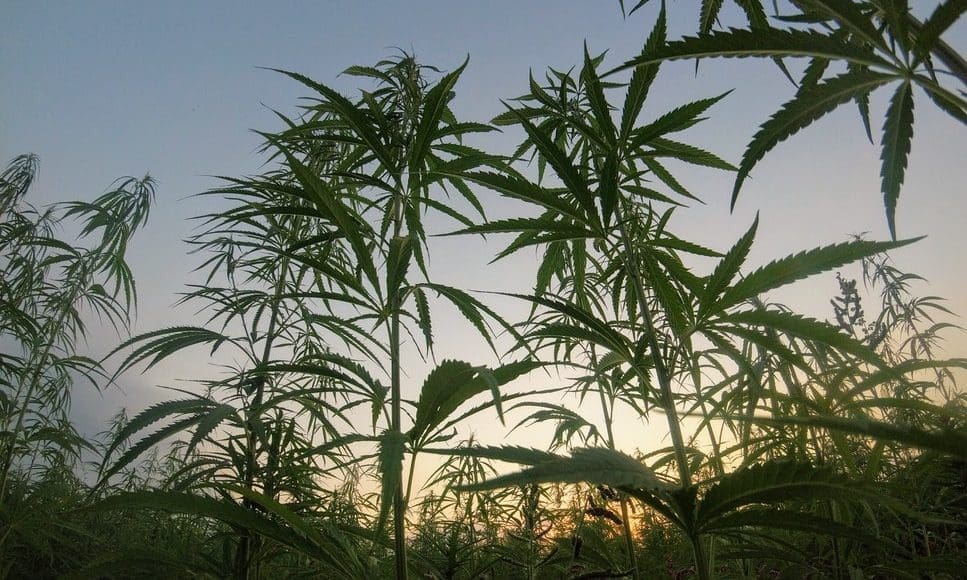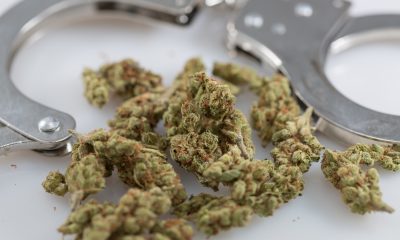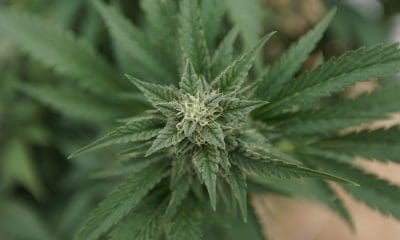Politics
DEA Denies Request To Protect Iowa Medical Marijuana Program, But State Still Considering Action

The Drug Enforcement Administration (DEA) rejected a petition to exempt Iowa’s medical marijuana program from the Controlled Substances Act (CSA) this month, Marijuana Moment has learned. But the activist who filed the request plans to push again for the exemption—and the state itself is considering separately filing a petition of its own to the federal agency.
The ask here is unconventional and hasn’t been pursued by any other state that has legalized cannabis for medical or recreational purposes. But longtime activist Carl Olsen has worked with members of the Iowa Department of Public Health to etch out a plan to pursue the exemption under an existing federal statute in accordance with a bill that state lawmakers passed earlier this year.
Olsen’s initial petition, submitted in 2019, was rejected by DEA on November 10. The agency said in a letter that it was denied “because the [Controlled Substances Act] controls marijuana under schedule I, and your requested exemption would result under the circumstances in the lapse of regulatory controls and administrative, civil, and criminal sanctions applicable to substances placed on the various CSA schedules.”
But from the activist’s perspective, DEA didn’t do its due diligence in reviewing the statute that he claims provides for the state-level exemption. And he’s got the tentative backing of the health department, which is still considering submitting its own request, albeit on a different time schedule. The body might wait until President-elect Joe Biden is inaugurated, as they feel his administration may be more amenable than the current one.
DEA regulations stipulate that the agency’s administrator “may grant an exemption in his discretion, but in no case shall he/she be required to grant an exception to any person which is otherwise required by law or the regulations.”
Owen Parker, program manager for the health department’s Office of Medical Cannabidiol, told Marijuana Moment that officials are “still evaluating as how to implement” the requirement in the Iowa bill that passed this year to push federal agencies on protecting health care facilities in the state from federal punishment.
“No final decisions have been made at this time,” he said.
The language of the state legislation in question doesn’t specifically call on regulators to submit an exemption application. Instead, it broadly calls on the public health department to “request guarantees from the agencies of the federal government providing funding to educational and long-term care facilities that facilities with policies allowing patients to possess medical cannabidiol on the grounds of the facilities…or allowing facility staff to administer medical cannabidiol to a patient shall not lose eligibility for any federal funding due to such policies.”
Members of the state Medical Cannabidiol Board said during a meeting in September that the DEA exemption application process would be the most effective way to establish protections from losing funds as a result of its existing medical marijuana program.
That said, at another meeting this month, Parker reported that “internally here at the Department we are still working on that brief, and there’s other discussions that we’ll need to have before moving forward on anything.”
For Olsen’s rejected individual petition, the activist said he intends to submit a request for reconsideration by DEA—rather than go straight to a federal appeals court with a lawsuit. And in that request, he plans to stress that the state is weighing moving forward with a petition of its own.
In addition to asserting that federal law preempts state policies on marijuana, DEA also said in their response to Olsen that the agency is bound by international treaty obligations to maintain the plant’s general restrictive federal classification, and that’s part of the reason it denied the petition. But according to Olsen, those treaties only obligate them to place cannabis in certain schedules of the CSA and and do not address the U.S. statute that provides for administrative exemptions.
For what it’s worth, Iowa’s medical cannabis is more limited than those that have been established in many other states. For example, it limits registered patients to a maximum of 4.5 grams of THC per 90-day period. Prior to a reform adopted by the legislature earlier this year, patients could only access cannabis products with up to three percent THC content.
It remains to be seen whether DEA will approach the state’s application differently than Olsen’s, if and when it’s filed. The agency has historically resisted rescheduling requests, let alone full exemptions, for marijuana.
Scientists and veterans sued DEA this year, arguing that the legal basis it has used to justify keeping cannabis in Schedule I is unconstitutional. They asked for a review of its decisions to reject rescheduling petitions across several decades.
A federal appeals court denied a request from DEA to dismiss the lawsuit In August.
Read DEA’s response to the Iowa activists’s marijuana exemption request below:
DEA response to exemption r… by Marijuana Moment
Federal Agencies Must Get On The Same Page With Hemp Rules, Lawmakers Say
















